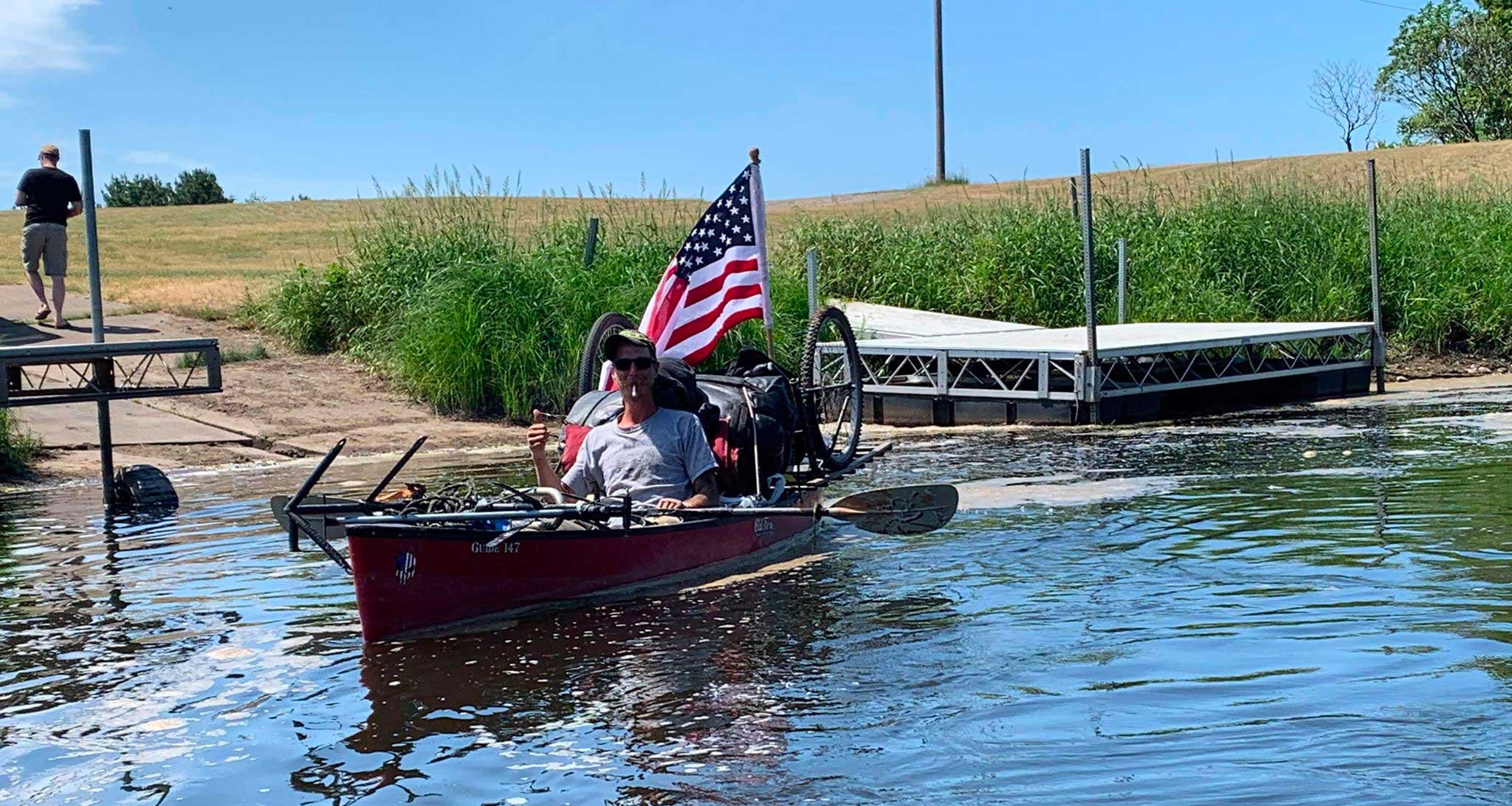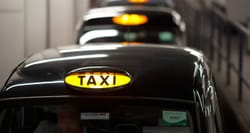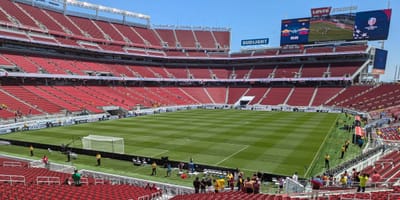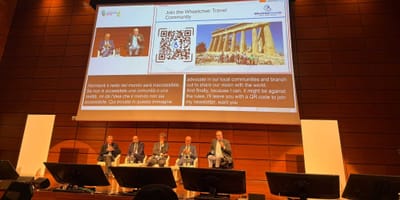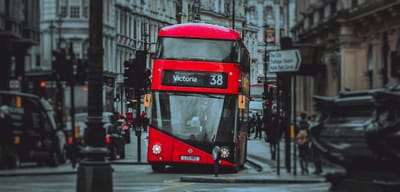Here is a round-up of the latest news in the world of accessible travel and disability, including two disabled men who are currently canoeing the length of the Mississippi River, a new accessible train that will soon launch, an ADA case against Uber that was dismissed, a wheelchair user’s report from lockdown and more.
Accessible travel news from around the web:
- Amputee and veteran canoe down Mississippi River to raise awareness and money for disability nonprofit — Nate Denofre, a double amputee, and Don Jokinen, a disabled combat veteran, have embarked on a journey to canoe the length of the Mississippi River. Their journey of some 2,300 miles is being made to benefit Courage Incorporated, a non-profit that takes veterans and adults with disabilities on outdoor adventures in Michigan and Wisconsin. They are currently paddling through the State of Minnesota. You can track the group’s progress down the river on their GPS Map.
- New wheelchair accessible train car — Greater Anglia, a rail company in the United Kingdom, has unveiled a new wheelchair accessible train, set to debut later this year. The trains, manufactured by Bombardier, contain two wheelchair spaces in each set of 5 cars, as well as 48 priority seats for ambulatory passengers with mobility challenges. Rail cars containing wheelchair accessible spaces are marked with a blue stripe at the top of the car to increase visibility. Wheelchair spaces are equipped with a power outlet and USB ports.
- Man traveling from Orlando to Europe sues airport — Quamer Khaliq, who uses a wheelchair due to Spinal Muscular Atrophy, was forced to wait two hours for assistance upon returning to Manchester from Orlando, Florida. The flight had already taken 9 hours, and he remained on the aircraft long after all other passengers and the cabin crew had departed. The airline, Thomas Cook Airlines, had then sent newly recruited flight attendants onboard the aircraft for training exercises, while he continued to wait. Mr. Khaliq’s attorney said, “Our client believes that Manchester Airport clearly breached their responsibility to provide assistance to disabled passengers.” The case has been submitted to the High Court.
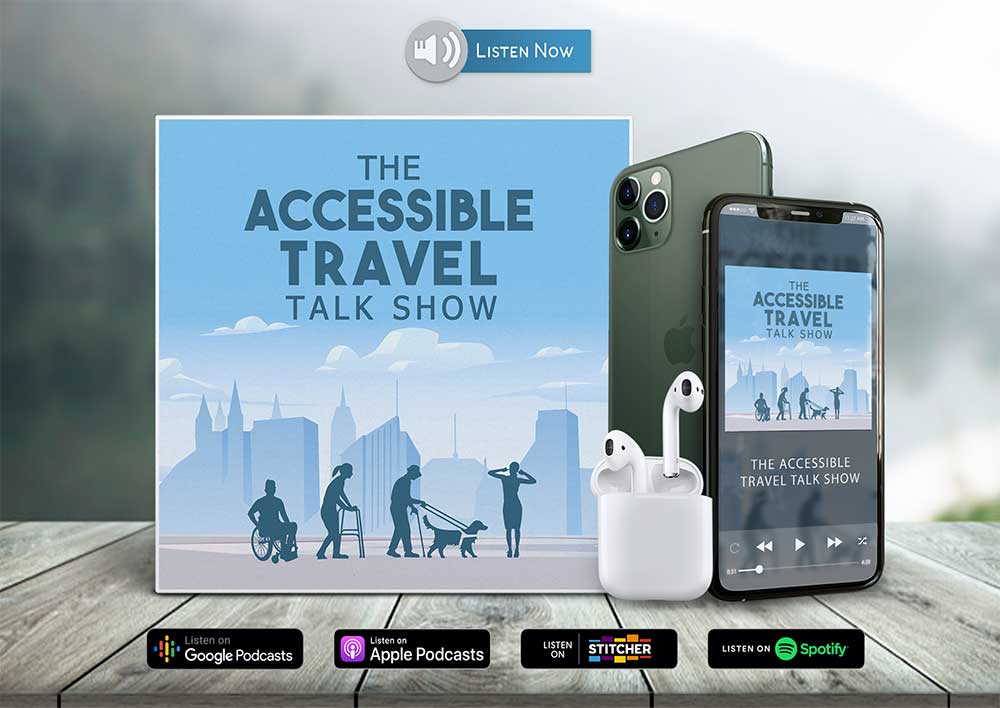
- A new podcast about accessible travel — Did you know that I started a podcast? The Accessible Travel Talk Show consists features discussions about accessible travel with disabled people, travel industry experts and businesses. A new topic or destination is covered in each episode, and I hope you’ll listen or subscribe! My first guest is Emma Muldoon of Simply Emma. As always, I welcome your feedback and suggestions for future guests or topics!
- What wheelchair users are doing in lockdown — Speaking of Emma Muldoon, she’s recently written about her experiences in quarantine for The Falkirk Herald. Although she is disappointed to have to shield in place, she has used the time for fun activities like jigsaw puzzles and bird watching. “I’m all about savouring the small moments during this time,” she said.
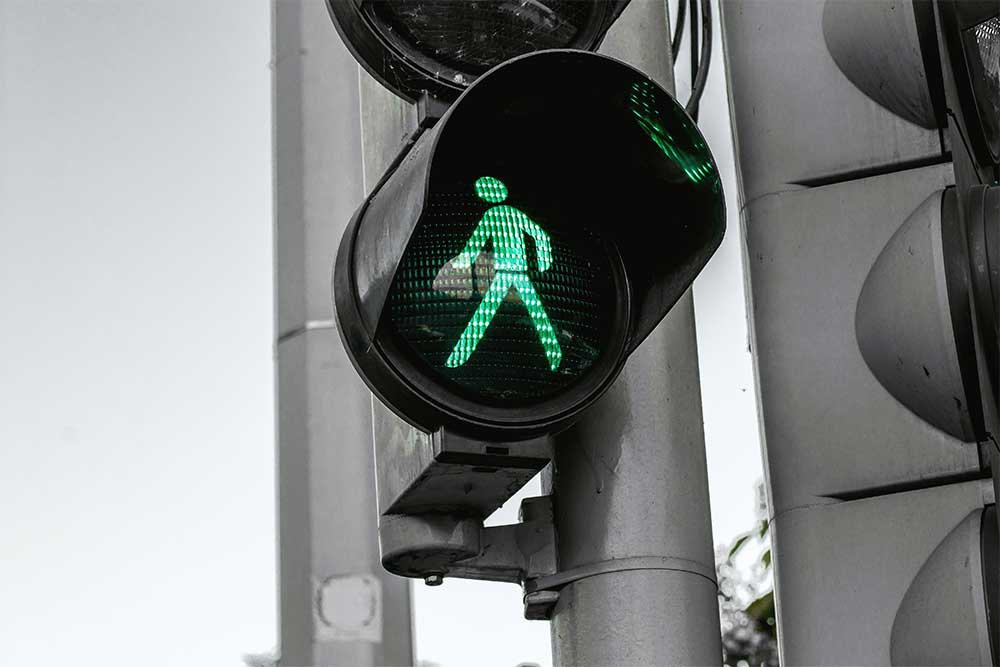
- Faulty traffic signal contributed to wheelchair user’s death — On October 19, 2019, John C. Yarosz II was struck by a motor vehicle while crossing the street in downtown Williamsport, Virginia. He and his care assistant had repeatedly pressed the crosswalk button, but after waiting multiple light cycles, the pedestrian signal never changed. A driver making a right turn on a green light struck Mr. Yarosz, and he and his wheelchair were dragged under the vehicle. He was pronounced dead at the scene. Executors of his estate have filed a wrongful death lawsuit against the city and the driver.
- Lawsuit against Uber can’t proceed because nonprofit organization is the plaintiff — Access Living of Metropolitan Chicago filed a case against Uber for its lack of wheelchair accessible taxis, which it said increased wait times for its volunteers and employees, and in some cases left them having to ride in a standard taxi at higher cost. The 7th U.S. Circuit Court of Appeals dismissed the suit, claiming that Title III of the ADA “requires the would-be plaintiff to directly experience the challenged discrimination,” which could not be true of an organization in this instance. This is not the first time an ADA case that might otherwise have been successful has been thrown out because the organization bringing it lacked standing. Money would be better directed to support individual plaintiffs with the strongest cases.
Featured image courtesy Paddling to Persevere.

